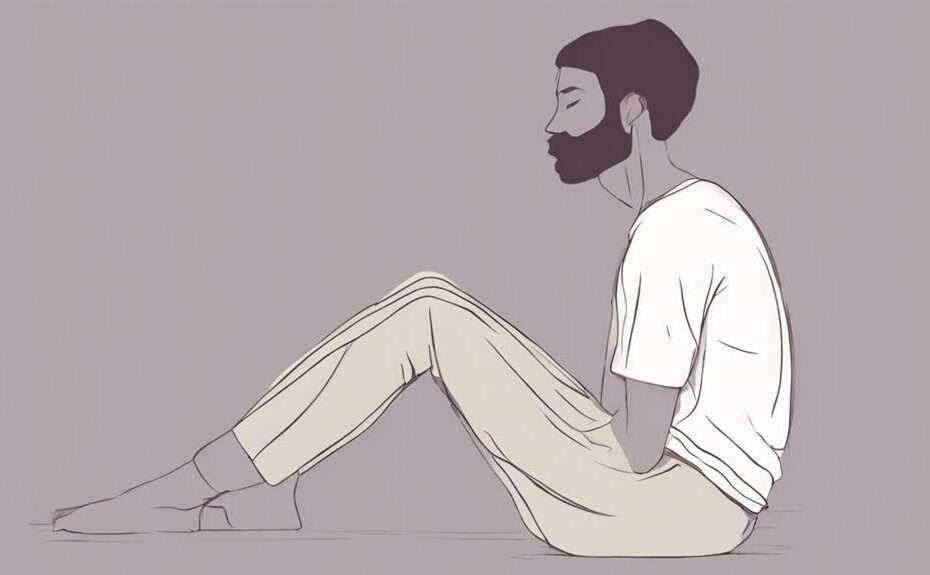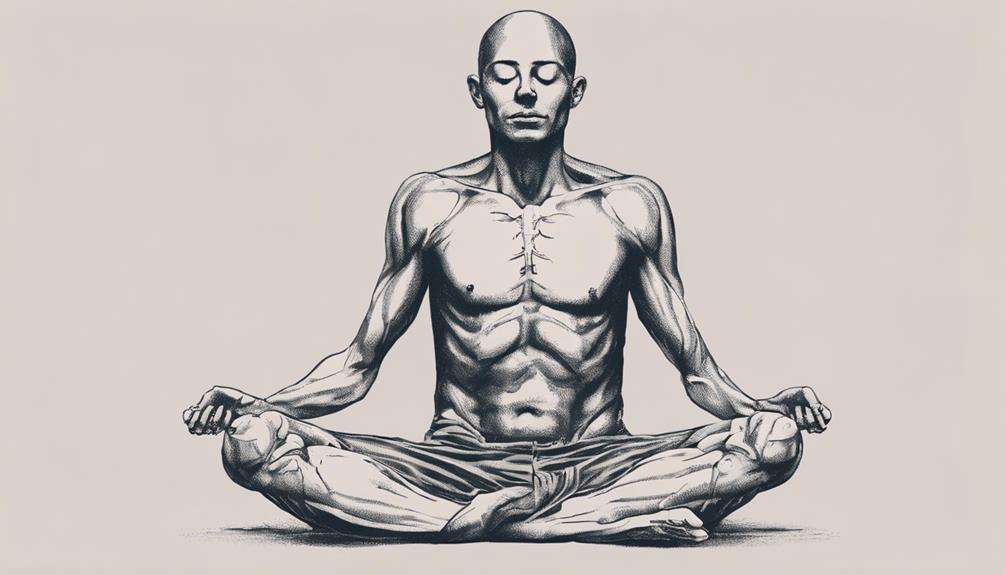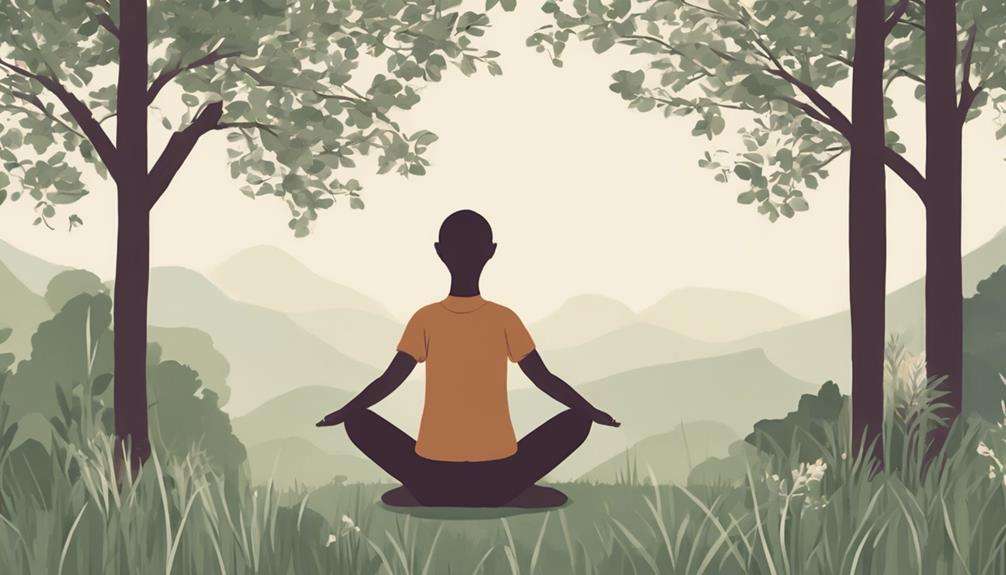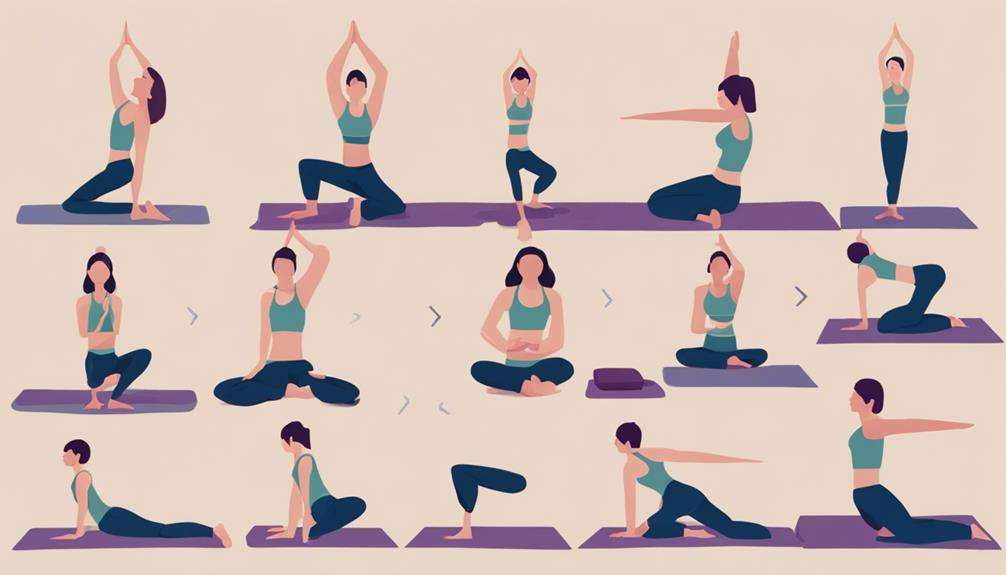When you feel overwhelmed, have you ever noticed how your breath becomes quick and shallow?
The relationship between your breath and relaxation goes beyond mere observation. Controlled breathing techniques have the power to influence your body and mind in profound ways, aiding in stress reduction and promoting a sense of calm.
As you explore the intricacies of how breathwork intertwines with relaxation, you may discover a path to unleashing greater well-being and inner peace.
Key Takeaways
- Deep breathing influences the body's stress response and promotes a calm state of mind.
- Controlled breathing lowers stress hormones and engages the parasympathetic nervous system.
- Breathwork techniques induce a soothing effect on the mind and body, aiding in stress management.
- Mindful breath awareness enhances emotional regulation, reduces anxiety, and fosters overall well-being.
Importance of Breath in Relaxation
Breath plays an important role in relaxation by influencing your body's stress response and promoting a calm state of mind. When you experience stress, your body enters a fight-or-flight mode, increasing heart rate and blood pressure. By practicing controlled breathing techniques, you can lower these physiological responses, reducing stress hormones and facilitating a state of relaxation.
Deep abdominal breathing is particularly effective in engaging the parasympathetic nervous system, triggering a relaxation response that counters the effects of stress. This technique helps balance oxygen and carbon dioxide levels in your blood, enhancing both physical and mental calmness.
Breathwork Techniques for Relaxation
To achieve deep relaxation and calmness, incorporating breathwork techniques like deep breathing and abdominal breathing into your routine can be highly beneficial.
Deep breathing allows you to fill your lungs fully, stabilize blood pressure, and slow your heartbeat, inducing a soothing effect on your mind and body.
Engaging in abdominal breathing efficiently with the diaphragm can lead to physical relaxation and decreased stress levels, making it a powerful tool in managing daily stressors.
Deep Breathing Benefits
Engage in deep breathing techniques to access the calming benefits and promote relaxation. Deep breathing fills the lungs fully, raising the lower belly, promoting full oxygen exchange, and inducing calming effects.
Shallow breathing, on the other hand, limits oxygen exchange, leading to feelings of breathlessness and anxiety. Diaphragmatic or abdominal breathing not only stabilizes blood pressure and slows the heartbeat but also influences body image and cultural habits.
Controlled deep breathing aids in disengaging from distractions and focusing on slow, calming breaths, facilitating relaxation. By engaging in these techniques, you can tap into the parasympathetic nervous system, which is essential for reducing stress and promoting a sense of calmness and well-being.
Mindful Breath Awareness
Shifting from deep breathing benefits, an effective way to induce relaxation and reduce stress is through mindful breath awareness, a practice that involves focusing on the present moment and observing your breathing patterns.
By incorporating diaphragmatic breathing techniques, you can activate the body's relaxation response, leading to lower cortisol levels and decreased heart rate. This mindfulness practice not only promotes a sense of peace but also enhances emotional regulation and aids in anxiety management.
Engaging in mindful breath awareness regularly can help cultivate mindfulness, improve concentration, and contribute to overall well-being. Make time for this simple yet powerful tool in your daily routine to experience the profound benefits it offers for relaxation and stress relief.
Breath Awareness for Stress Relief
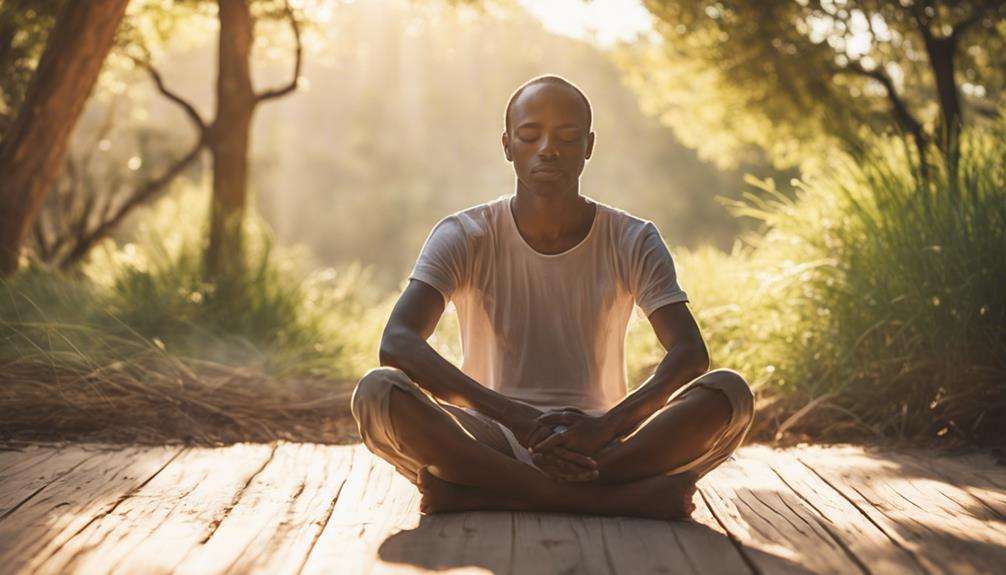
Are you looking for a simple yet effective way to alleviate stress and calm your mind?
By focusing on your breath, you can tap into the powerful mind-body connection that promotes relaxation.
Through mindful breathing practices, you can reduce anxiety levels and achieve a state of calmness and tranquility.
Deep Breathing Benefits
Experience the transformative benefits of deep breathing through breath awareness for stress relief. Deep breathing techniques offer a range of advantages for your mental and physical well-being:
- Best Oxygen Exchange: Deep breathing fills the lungs fully, promoting efficient oxygen exchange and enhancing overall respiratory function.
- Anxiety Reduction: By engaging in diaphragmatic or abdominal breathing, you can stabilize blood pressure, slow the heartbeat, and alleviate feelings of anxiety and breathlessness.
- Cultural Influences: Your cultural background and body image can influence how effectively you engage in deep breathing practices, highlighting the importance of understanding individual differences.
Engage in deep breathing exercises regularly to enjoy these benefits and promote a sense of relaxation and balance in your daily life.
Mind-Body Connection
Enhance your well-being by cultivating a strong mind-body connection through breath awareness for stress relief.
By focusing on your breath, you can activate the body's essential relaxation response, promoting a sense of calm and reducing anxiety levels.
Conscious breathing patterns play a vital role in calming the mind and engaging the parasympathetic nervous system, leading to a state of relaxation.
Through deep and intentional breathing, you can enhance emotional regulation and overall well-being.
Practicing breath awareness techniques regularly can help you establish a deeper connection between your mind and body, allowing you to better manage stress and improve your quality of life.
Embrace the power of breath awareness for its profound impact on your mental and physical health.
Role of Breathing in Meditation
Breathing serves as a fundamental pillar in meditation, facilitating focus, relaxation, and the attainment of meditative states. When engaging in meditation, the way you breathe can greatly impact your experience. Here's how breathing influences meditation:
- Mindful Breathing Techniques: Utilizing specific breathing techniques during meditation helps regulate your emotions, reduce stress, and promote mental clarity. By focusing on your breath, you can anchor yourself in the present moment, enhancing mindfulness.
- Activation of the Parasympathetic Nervous System: Deep, slow breathing during meditation triggers the parasympathetic nervous system, leading to a relaxation response in your body. This response counters the effects of stress and promotes a sense of calm and tranquility.
- Enhanced Concentration and Well-being: Controlled breathing patterns in meditation enhance concentration, mindfulness, and overall well-being. By mastering breath control, you can achieve a state of deep relaxation and mental clarity, paving the way for a more profound meditative experience.
Breathing Exercises for Relaxation
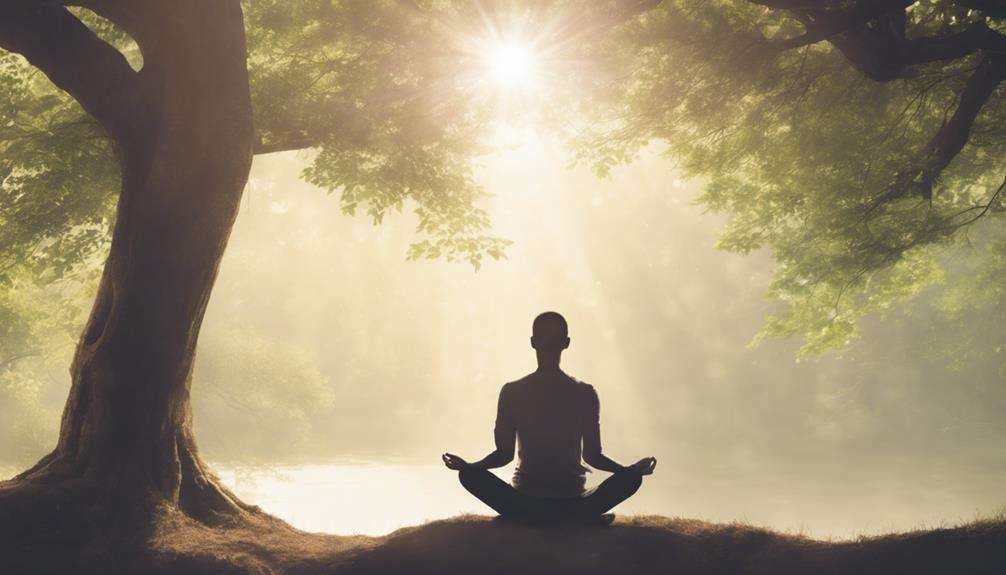
Moving from the role of breathing in meditation, let's now shift our focus to practical breathing exercises for relaxation that can greatly benefit your well-being and inner calmness.
Breathing exercises play an important role in promoting relaxation and reducing stress. By engaging in slow and deep breathing techniques, you can activate your body's relaxation response, leading to a decrease in stress hormones, lowered heart rate, and an overall sense of calmness.
Diaphragmatic breathing, which involves the engagement of the diaphragm, is particularly effective in inducing physical relaxation. Deep breathing, where you fill your lungs fully, can help stabilize blood pressure and slow down your heartbeat.
When you practice breath focus, you enhance your concentration, detach from distractions, and foster a profound sense of tranquility. Incorporating these simple yet powerful breathing exercises into your daily routine can greatly contribute to stress reduction and overall well-being, allowing you to tap into the relaxation response of your body.
Mind-Body Connection Through Breath
Connecting your mind and body through intentional breath work allows for a crucial sense of harmony and well-being to flourish within you. By focusing on your breath, you can tap into the powerful mind-body connection and elicit the relaxation response, activating your parasympathetic nervous system to bring about a state of calm. This connection plays a critical role in regulating cortisol levels, reducing stress, and promoting relaxation.
Here are three ways in which breath can enhance the mind-body connection and promote overall well-being:
- Diaphragmatic Breathing: Engaging in deep diaphragmatic breathing can lower your heart rate and blood pressure, signaling to your body that it's time to relax.
- Mental Clarity: Through controlled breathing techniques, you can shift your focus away from stressors, fostering mental clarity and a sense of relaxation.
- Improved Oxygen Circulation: By practicing controlled breathing, you can enhance oxygen circulation throughout your body, aiding in relaxation and reducing feelings of anxiety.
Embrace the power of breath to nurture your mind-body connection and invite a sense of peace and tranquility into your life.
Frequently Asked Questions
What Is the Relationship Between Breathing Patterns and Relaxation?
Taking deep breaths with controlled inhales and slow exhales engages your diaphragm, activating the relaxation response. Mindful breathing through techniques like breath awareness promotes stress relief. Embracing proper breathing patterns nurtures relaxation by calming your mind and body.
Why Is Breathing Important to Calm the Body?
When you're stressed, deep breathing helps calm your body by reducing muscle tension and promoting relaxation. By using diaphragmatic breathing, you trigger the relaxation response, control your breath, and increase oxygen intake, aiding in stress relief.
What Is the Connection Between Breath and Mind?
When it comes to the connection between breath and mind, breath awareness is key. Deep breathing fosters a strong mind-body link, triggering the relaxation response. By practicing breath control and mindful techniques, you can achieve mental calmness and stress relief.
What Is the Breathing Pattern for Relaxation?
To achieve relaxation through breathing, focus on a slow exhale, deep inhale, and diaphragm breathing. Emphasize belly breathing with equal breaths, incorporating long exhales. Techniques like box breathing, alternate nostril, and the 4 7 8 method can enhance relaxation.
Conclusion
So, next time you're feeling stressed or anxious, remember the power of your breath.
By practicing simple breathing techniques, you can tap into a natural source of relaxation and calmness.
Your breath is like a soothing wave, washing away tension and bringing peace to your mind and body.
Embrace the connection between breath and relaxation, and let yourself breathe your way to a more serene state of being.
